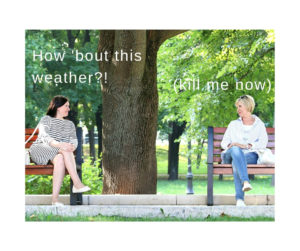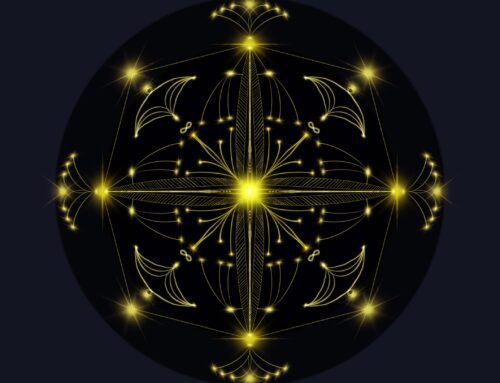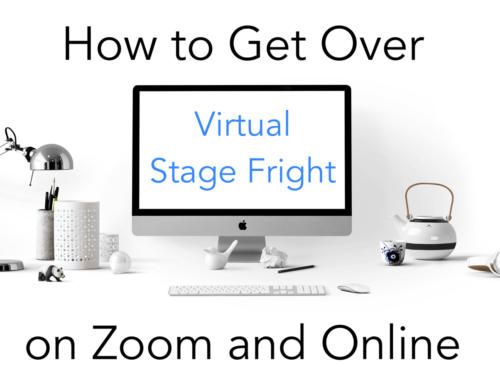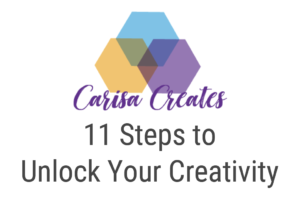 Contrary to popular belief, introverts and Introvert Artists are not these awkward killjoys that choke when trying to say hello to strangers and secretly (or not so secretly) hate other humans.
Contrary to popular belief, introverts and Introvert Artists are not these awkward killjoys that choke when trying to say hello to strangers and secretly (or not so secretly) hate other humans.
As an off-the-charts Introvert Artist, I can tell you that we actually like people… really!
We just dislike shallow exchanges that leave us feeling unsatisfied or even depleted.
So, what’s the difference between introverts and extroverts?
Surprisingly, it’s not about whether you are shy or outgoing, and has nothing to do with your level of social skills. The primary distinguishing factor between introverts and extroverts is this:
Extroverts derive energy from socializing and feel recharged after being with others.
Introverts are drained by socializing and feel recharged by spending time in solitude.
That’s it!
If just hearing that affirms for you that you are an Introvert Artist, and especially if you are still unsure, read on to discover the 20 traits of an Introvert Artist, and how to work them like a boss.
1. You Find Small Talk Incredibly Cumbersome
For the Introvert Artist, small talk feels like disingenuous fluff. Chatting about the weather or mundane aspects of life can make you itch and literally drive you to the point of anxiety.

The primary reason for your discomfort is likely the fact that nothing of importance or interest is actually being shared, but your attention – which is precious and easily depleted – is being asked for anyway.
If you are going to give up your precious energy for an exchange with another person, you want it to be worth it.
How to Work It: If you find yourself caught in the dreaded small talk vortex, simply ask an open ended question. Something that has to do with your artistic pursuits would be ideal, because you could quickly gauge whether that person is interested in you as a human, or is just seeking someone to pay attention to them or fill an awkward void in the chatting at a potluck.
For example, you could ask; “Have you seen the ___ exhibit at the art museum? Oh you haven’t? Well, I’m an artist and I found it made me feel____, reminded me of ____, transported me to ____. Do you like art?”
You get the idea! Ask questions that lead the conversation toward something you are interested in, or toward you learning more about your new acquaintance.
The person will either lose interest and walk away, or you could end up having a delightful chat. Either way, you have protected your energy and will feel less drained, and you may even be rewarded with a meaningful exchange with another human.
2. If You Could Just Stay in Your Studio and Create All Day, You Totally Would
You derive the greatest satisfaction from life when you have ample time to create – alone. But, your natural tendency to avoid shallow and draining interactions with people can get you stuck in hermit mode and isolating in an unhealthy way.
 How to Work it:
How to Work it:
Use the internet! And I don’t just mean lurking around in Facebook groups and nerd-infested forums.
Use the internet to find your people, and then hone in on a local community of individuals you can actually meet in person. I know you love writing – and probably prefer it to talking – but you do still need face time with real people to keep yourself healthy and engaged.
Another important facet of working this trait is managing your time. Your urge to stay in the flow and keep creating may mean you end up neglecting other aspects of adulting and being human.
Make a “to do” list of things that you may not necessarily enjoy, but that need to be done for your good. These things include self care, cleaning up your home, paying bills, and the like.
Each day, pick one thing you don’t like to do but need to do from the list and do it FIRST. This is an important life skill and will benefit you in so many ways. Check off the items on your list that you need to address now and THEN go into your hole and make art.
Taking care of business first allows you to really open up and enjoy your creation time, guilt free, and there will be no un-managed life stuff waiting to stress you out once you emerge.
3. You Can’t Stand Being Around People Who Talk Too Much
If you’re an Introvert Artist, you feel drained around people who constantly want your energy and attention, and for you to listen to their seemingly ceaseless stream of babble despite the fact that you are deriving very little benefit from the exchange. I call these folks HyperTalkers.
 Sometimes HyperTalkers use talking as a way of releasing nervous energy they haven’t learned to discharge in other ways.
Sometimes HyperTalkers use talking as a way of releasing nervous energy they haven’t learned to discharge in other ways.
Sometimes a person has picked up the habit of using talking to get energy from other people – whether consciously or unconsciously.
Sometimes, it’s simply a compulsive habit or something that has developed out of a throat chakra imbalance. These people are almost never intentionally trying to hurt you, they are just living in the way that works best for them at this time.
But whatever the reason, Introvert Artists seem to find these kinds of exchanges particularly draining, and will do most anything to avoid them. Have you ever scampered into a grocery aisle full of things you obviously don’t need to avoid that overly-chatty person from work you just spotted? 😉
How to Work it:
To deal with encounters with HyperTalkers, you may use the ever-effective open ended question technique. This works well for people you don’t know well or encounter very often.
For people you do encounter more often, you may politely share that you are an introvert, and part of being this personality type means you feel drained by listening to someone talk at you without any opportunity to ask your own questions and move the conversation toward something that interests you as well.
 For example, you could say, “I would love to have a conversation with you where I have the opportunity to ask questions, and express my opinion. I love really connecting, and I’d like to connect with you. But, I find interactions where someone is talking at me for long period of time very draining. Would you like to have a more balanced conversation sometime?”
For example, you could say, “I would love to have a conversation with you where I have the opportunity to ask questions, and express my opinion. I love really connecting, and I’d like to connect with you. But, I find interactions where someone is talking at me for long period of time very draining. Would you like to have a more balanced conversation sometime?”
90% of the time, they will blink and tilt their heads like a confused puppy, and then either:
a) walk away,
b) get offended (the people who get the most upset by you having boundaries are those who benefited when you had none) or,
c) choose to engage with you, and you’ll end up having a delightful chat with another human. Muster up the nerve to assert yourself and protect your energy, you are worth it!
4. You Can Feel Alone in the Middle of a Crowd
Despite the fact that you may be surrounded by many people, your need to really connect on a deep level to receive satisfaction from an interchange can make a big crowd feel like a lonely place.
 How to Work it:
How to Work it:
When in these situations, allow yourself to simply be an observer, without pressuring yourself to interact, or make yourself more noticeable.
I find it very enjoyable to sense what is going on around me, tune in to all my “clairs” and play energy games with the people around me.
Additionally, you could focus on just one or two people in your immediate proximity that you could connect with more meaningfully to derive enjoyment from your time.
5. You Listen Deeply with the Intent to Understand, Rather than Just Respond
You’ve probably been told that you are a good listener. Introvert Artists tend to be very present and listen well, and, with a true desire to understand what the person is saying so that a deeper level of communication can be reached.
Most HyperTalkers love having someone’s undivided attention, so the draining mismatch between HyperTalker and Good Listener Introvert Artist often causes pain for the latter.
Develop the boundaries to recognize this kind of exchange when it is happening and interrupt the feeding.
 How to Work it:
How to Work it:
Begin to recognize when you are in a conversation with someone who simply needs some deep listening in that moment, and when you are caught up in a parasitic exchange with someone who just wants a face to talk at – indefinitely.
The best way to interrupt parasitic exchanges is to use your voice and repeat back a paraphrased version of what the person just said, and then ask an open ended question about it, or share your feelings.
In paraphrasing and asking a question, you are telling the person you have heard them, but you are also letting them know that a healthy conversation is an exchange, and you won’t allow them to dominate the relationship and drain you by forcing you to listen to them go on forever with no regard for what you have to say.
6. You Tend to Speak Fewer Words and Need Others to Really Hear Them
Quiet reflection is the hallmark trait of an Introvert Artist. You do not feel the need to verbalize every trivial thought that falls into your head. When you do verbalize something, it means you have given it thought – possibly a great deal of thought – and feel there is importance to what is being said.
Because of this, you can easily feel offended or hurt if people don’t listen to you the way you listen to them.
 How to Work it:
How to Work it:
You can’t change other people, or force them to develop skill sets they don’t have.
If someone is not a great listener and they are not in your inner circle, it may be best to just accept them as they are and let it be.
However, if a person with whom you have a closer personal or working relationship with is not hearing you, it’s important to remedy that for the sake of clear communication.
One way to begin is to share your feelings like this: “I feel like you are not hearing me, or perhaps I’m not explaining very well. It’s important for me to have clear communication with you because I really value our relationship. Will you repeat back what I’m saying, in your own words, so I know if I’m being clear enough?”
This addresses the issue without blaming them – or yourself – for the situation, and will open the door to more connected conversations.
7. You’ll go to Parties, but Not to Meet New People
When you are finally drawn out of your Creation Cave to go to a social gathering, you are more likely to go and meet up with people you already know and like.
 If you find yourself oft invited to parties and events full of strangers, that means you have developed enough social skills for people to want to spend time with you (congratulations!) But, it would be far too draining for you to accept every invitation.
If you find yourself oft invited to parties and events full of strangers, that means you have developed enough social skills for people to want to spend time with you (congratulations!) But, it would be far too draining for you to accept every invitation.
How to Work it:
Go out with your friends when it feels good, and maybe let them know that inviting one or two new people to come along is fine with you. This allows you to meet a limited number of new people in a zone that feels comfortable to you because you have a mutual friend.
Keep gatherings with mostly strangers to a bare minimum and employ your energy protection skills while you are there. It’s your responsibility to protect your own energy. Your own behavior and responses are the only things you have control over, so start there.
8. You’d Rather Have a Root Canal than go to a Networking Function
Typical business networking functions can feel phony, sales-y, and contrived. Getting into work clothes to shake hands and drink bad coffee with strangers trying to sell themselves is nothing short of torture for an Introvert Artist.
The culture at typical networking functions is traditional business oriented, and does not exactly welcome you to show up as your brilliant creative self. It’s as if you have to put on a grey face and a fake persona to be accepted, and no self-respecting Introvert Artist wants to be a phony drone.
 How to Work it:
How to Work it:
Go to fun networking functions that celebrate the arts, that are immersed in music and creative culture! They may not be as easy to find, but they will be far more rewarding.
Alternatively, agree to come to a typical networking function, but show up as yourself.
Wear something wildly creative (if that’s your style) and share your art rather than giving an elevator speech. Agree to live paint, sing a few songs, or otherwise share your gifts at the function. Bring some business cards to leave behind when you ghost early (preserve your artistic mystique!), and when people try to talk to you, you can pretend to be too engrossed in your art to interact – which is likely not far from truth.
9. You Have a Rich Inner Life
Part of what makes you a great artist is your ability to explore inner space. You plumb your own depths regularly, you think deeply, you enjoy abstraction and creating entire worlds in your vivid imagination.
While you may look like a plain person on the outside, you could be living out the most colorful and imaginative adventure on the inside.
I believe that the majority of the Introvert Artist’s life energy resides in the subtle realms of the mind and multi-dimensional spaces than here on terra firma!
 In addition, you may be totally unconcerned with fame and fortune, preferring to live quietly and out of reach of the prying eyes of the public.
In addition, you may be totally unconcerned with fame and fortune, preferring to live quietly and out of reach of the prying eyes of the public.
You may even look at fame as a curse, and wind up self-sabotaging yourself right off the path of success because of your fear of exposure.
How to Work it:
I encourage you to continue creating and building upon your rich inner life, and even to enhance your ability to explore your consciousness through meditation practice.
I also encourage you to find a way to share some of what is living within you. Your soul came here wanting to express and share through the arts, so bring some of what you have inside into your music, onto a canvas, or into your choreography.
If you feel that fear or anxiety of exposure is holding you back from sharing, find a way to address it. We Introvert Artists tend to feel especially afraid of sharing ourselves in vulnerable ways, but it’s what we are born to do! Move through your fear and step into being the artist you truly are.
10. You’ve Been Accused of Being “Too Intense”
In conversation, many people are a little afraid of the deep end. While you have the strong desire to jump right in and get to the good stuff, other folks may only be interesting in splashing about in the shallows.
If you are an Introvert Artist, people may often comment that your eyes look right through them, or that you seem psychic or intuitive. They may even feel like they are being seen and heard in a way that they haven’t before, and their facade suddenly becoming transparent makes them feel vulnerable. If they are not ready to be seen, they will probably want you to lighten up.
 How to Work it:
How to Work it:
People’s issues and personal lives are none of your business. If you have a desire to have a juicy conversation with someone, don’t begin by asking deeply personal questions. You can share your own feelings, or ask them what they think about an interesting topic.
As always, ask open ended questions to gauge whether your new acquaintance is interested in having a conversation that feels rewarding for you as well, or if they are simply not interested in taking a dive.
If you are able to use your voice and ask questions, it will either bring the exchange to a swift end (thank goodness), or you will end up having a delightful conversation with a new friend.
11. You are Easily Distracted or Irritated by Stimulating or Noisy Environments
While extroverts tend to get bored easily when they don’t have enough stimulation, Introvert Artists tend to get easily distracted and overwhelmed in environments with an excess of stimulation.
You do your best work when alone in the quiet of your cave, phone turned off. You would never think of trying to write the next chapter of your book in a “peopley” coffee shop with all that noise and traffic. And, if for some reason you are forced to leave your cave to work on your creative pursuits, the library is your first choice.
 How to Work it:
How to Work it:
Keep your exposure to noisy or stimulating environments to a minimum.
Naturally, you need to get groceries and drive in traffic at times, but do you need to say yes to living in a communal space, or working in a noisy factory?
If at times you have no choice but to work in an environment that is noisy or distracting, try wearing earbuds and listening to music that helps you concentrate.
I find very spare, minimalistic ambient music to be perfect for the task. It’s not so interesting that I find myself listening to it instead of working, but it filters out unwanted noise and the earbuds prevent people from assuming you are dying to have a chat. Earbuds really do create a magic boundary!
12. Downtime Alone Doesn’t Feel Unproductive, it Feels Necessary
Downtime doing nothing but simply being is of critical importance for Introvert Artists. If you are a musician, it may even suit you to be in silence and not even listen to others material while you are resting your ears.
Taking time away from the computer helps producers, writers. and other creatives who put in a lot of screen time to rest their eyes and allow their vision to soften and diffuse out to a wider, more expanded perspective.
Hyper-focused mind states brought on by constantly focusing the vision forward on a task can cause chronic anxiety and tension.
Perhaps most importantly, creating a calm and quiet mental space with little activity allows your creative energy to flow more freely and inspiration to come more frequently.
 How to Work it:
How to Work it:
Do less, be more. Learn to say no. Don’t over-fill your schedule, or better yet, fill in time on your schedule for you to decompress and get some mental expansion, making room for more creativity.
Simply sit somewhere comfortable and quiet with a cup of tea and come back to your center, allowing all the static to settle. All you need to feel good again is time with your wonderful self.
13. Center Stage is more Comfortable than Backstage
For the Introvert Artist, public speaking or performing tends to be easier than meeting with the public. Giving a talk or playing a gig in front of a thousand people can be less stressful than having to meet up with some of them after the event and make conversation.
To be an Introverted Artist doesn’t mean to be shy or fearful, it means you connect and recharge in different ways. You can feel amazing after giving a performance or a talk to a large group, but just an hour of interacting with some of those same people at a reception or backstage will drain everything you gained from the show.
 Because you feel drained by shallow interactions, your natural self preservation instinct will drive you to avoid those kinds of exchanges until you develop the boundaries and the skill to navigate them without feeling totally drained.
Because you feel drained by shallow interactions, your natural self preservation instinct will drive you to avoid those kinds of exchanges until you develop the boundaries and the skill to navigate them without feeling totally drained.
How to Work it:
Know and assert that you do not HAVE to make yourself available to anyone at anytime. You are not obligated to feed anyone, ever. If you have a desire to meet with people after a talk, stay at the reception only as long as it is good for you, and put into play the open-ended question technique to cut short the most draining exchanges.
Feel free to excuse yourself to go to the restroom, step outside to take a call, or talk with someone else at any time. You are not required to feed people your energy. Learn to live that truth, guilt free.
14. You are Drained by Socializing and Start to Shut Down if You’ve Been “on” Too Long
Do you start to get tired, grumpy, and unresponsive after you’ve been out and about for a long period of time? It’s probably because your system is trying to conserve energy.
As an Introvert Artist, everything you do in the outside world causes you to expend energy, which means sometime soon after you will need to replenish yourself. If a quiet place for replenishment cannot be found, many introverts will resort to zoning out, withdrawing, or lashing out in irritability.
How to Work It:
Know thyself! Pay attention to when your energy is being unduly drained and put a stop to it by having good boundaries. If the expenditure of your energy can’t be avoided, know when you are coming close to your limit, and stick up for yourself and your need to recharge. Do not apologize for needing replenishment!
 If you know you are going into an environment where it is likely you will feel drained, plan out times and places you can go to regularly recharge yourself. If your daily job is draining, and finding another is not an option, self care becomes critically important.
If you know you are going into an environment where it is likely you will feel drained, plan out times and places you can go to regularly recharge yourself. If your daily job is draining, and finding another is not an option, self care becomes critically important.
A meditation practice and diligent self care (including plenty of time in solitude and quiet) will help you stay balanced despite the energetic demands on your system. You do not have to fold up like a tent everyday; you can build greater capacity to cope using these practices.
15. An Unexpected Phone Call Feels Invasive and Triggers Anxiety
You screen all your calls, and even your friends get voicemail sometimes. Can you even remember the last time you picked up an unexpected call from an unrecognized number? Ha!
You may not pick up your phone, not even for people you like, but you’ll call them back as soon as you’re mentally prepared and have gathered the energy for the conversation.
 How to Work it:
How to Work it:
Keep screening, loves, and release any guilt about it. While work related calls during business hours may be an exception, you are not required to drop what you are doing and answer someone who is calling you. If it’s important, they will leave a message and you can call them right back if you are ready.
It’s up to you to set boundaries about what hours of the day you will take calls, and when it’s okay to simply be unavailable.
However, do make sure you are not ignoring people because of your tendency to avoid talking. Answer voicemails that need addressed in a timely fashion, and be sure to avoid only responding to text messages “in your mind.” 😉
16. You Notice and Sense Things Other People Miss
If you tend to pick up on things others don’t or feel overwhelmed by too much stimuli, it’s likely because you have superior sensory capacity. In fact, research has found that introverts exhibit increased brain activity when processing visual information, as compared to extroverts.
You notice details that others miss, get nuances in body language and in art that go over other’s heads, and pick up on sensory information – smells, tastes, textures – that others do not sense as well. Simply put, your sensory equipment is much more sensitive, and in a higher-key state than non-Introvert Artists.
 How to Work it:
How to Work it:
Super-sensory perception, and sometimes extra-sensory perception are your superpower!
Use them to tap into the abstract, the irrational, and the divine, and bring all that goodness home to your art, or to any part of your life.
And, share with others when you hear the car making a strange sound, smell a funny odor, or pick up on some weirdness with a mutual friend. Using your superpower to help prevent major breakdowns and spot burgeoning problems in your circle of associates can help you to feel like you belong.
17. Your Blood Pressure Rises at the Doctor’s Office
A 2006 Japanese study found that introverts tend to have a temporary spike in blood pressure at the doctor’s office, or what’s called “white coat hypertension.”
If you have had medical trauma in your past and you are also an Introvert Artist, there’s a good chance you could be wrongly diagnosed with high blood pressure if you have only had readings in a clinical setting.
 How to Work it:
How to Work it:
Check with your doctor to make sure your blood pressure is close to a healthy range.
Then, take your blood pressure at home so that you can compare the reading with your doctor’s findings. Share with your doctor that your blood pressure rises in clinical settings, and what your numbers are at home.
And remember; proper diet and self care will help ensure that all your systems keep running smoothly even if your numbers are a little unique.
18. You’re the Old Soul of the Group
Introvert Artists keenly observe and take in a lot of sensory and extra-sensory information. You probably think carefully before you speak, and tend to be more analytical and less emotionally reactive.
Together, these traits give you an air of wisdom, of one who is able to touch other worlds beyond this one, and share with other people what you have seen and experienced. Add this shamanic-type capacity to your creative talents and propensity for the profound, and you have a person that seems like a very old soul.
 How to Work it:
How to Work it:
Your keen skills of observation and analysis in this realm and beyond can help you greatly as an artist and entrepreneur.
Put them to use in knowing your audience, and sharing insights and inspiring blurbs along with your art. You have so much to offer, and people can pick up on that. Share it with them, and the rewards will be great.
19. You are a Visionary that Sees the Big Picture
Bored by the minutia and the day to day grind, the Introvert Artist loves projecting their creative energy into future visions or fantasy realms.
When describing the way that introverts think, Jung explained that they’re more interested in ideas and the big picture rather than facts and details. Of course, many Introvert Artists excel in detail-oriented tasks, but they have a strong preference for abstraction and creative thinking.
The visionary, the prophet, and the muse all can live within you and help guide you on your path.
 How to Work It:
How to Work It:
Indulge! Write a fantasy fiction story, or imagine an entire realm – complete with culture and diverse peoples – and create from that space.
No matter your creative medium, giving yourself your own world from which and in which to generate is immensely satisfying. And, feeling satisfied in that way makes it much easier to engage in rational thinking, fact analysis, and other very “left brain” activities – like doing your taxes – as needed.
Additionally, allow yourself to fully and consciously embrace the supernatural, that which lives beyond the mundane 3D matter-based reality. Everything is energy, and a mind open to the possibility of the existence of other realms and dimensions is a passport that gives you access to exploring them.
Remember, those who do not believe in magic will never find it.
20. You Prefer Writing to Talking
The Introvert Artist is likely to be better at communicating in writing than in verbal conversation. This preference for the slower pace and gentle energy of the written word means many are drawn to the solitary profession of writing.
Because you do your best work alone, with time to be in a quiet space and tune in with your creative energy, you naturally prefer that to being put on the spot by someone asking you questions in an unplanned conversation.
 How to Work it:
How to Work it:
Use your penchant for the written word to do the heavy lifting in your communications.
If you know you would like to have a conversation with someone, extend an email invitation outlining some quick points you’d like to cover, and your openness to hearing what they have to say. After all, you’re a great listener, remember?
Put together a professional portfolio, EPK, or media kit that helps outline all that highlights your greatest creations and achievements; because I know you don’t like to brag! Include letters of thanks or recommendation you have received, as well as some written testimonials or reviews.
You can also use blog posts, online courses, and other written content to “prime” potential clients and give them a chance to get to know you before you try to sell them something or invite them to an event. This allows you to place your pitch in proper context, and relieves you of the burdensome task of verbally explaining everything over and over again to each person you encounter.

- If you’ve read this far, it’s likely that you – like me – are an Introvert Artist.
And, I want to tell you how much I appreciate you right here, because I may not get the chance to talk to you in person 😉
I hope you use the tips in this article to work your IA status like a boss, and to bring out the best in yourself every day.
Carisa
Your Creativity Coach, Muse, and kindred Introvert Artist Spirit <3
Here are some additional resources for Introvert Artists Like You:
Books (yay!)
The Introvert’s Way: Living a Quiet Life in a Noisy World by Sophie Dembling
Introvert Power: Why Your Inner Life Is Your Hidden Strength by Laurie Helgoe
Quiet – The Power of Introverts in a World That Can’t Stop Talking by Susan Cain.








Leave A Comment